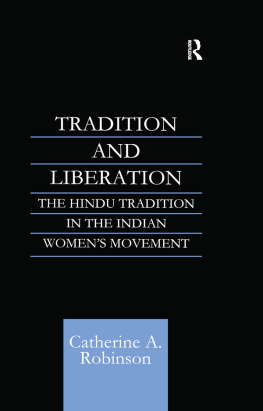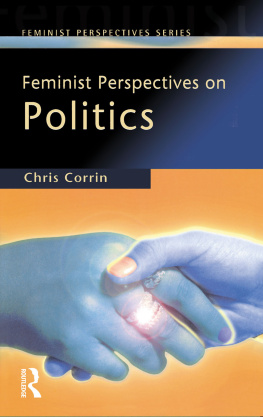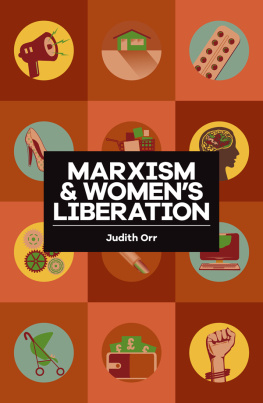George Stevenson - The Womens Liberation Movement and the Politics of Class in Britain
Here you can read online George Stevenson - The Womens Liberation Movement and the Politics of Class in Britain full text of the book (entire story) in english for free. Download pdf and epub, get meaning, cover and reviews about this ebook. year: 2019, publisher: Bloomsbury Publishing, genre: Politics. Description of the work, (preface) as well as reviews are available. Best literature library LitArk.com created for fans of good reading and offers a wide selection of genres:
Romance novel
Science fiction
Adventure
Detective
Science
History
Home and family
Prose
Art
Politics
Computer
Non-fiction
Religion
Business
Children
Humor
Choose a favorite category and find really read worthwhile books. Enjoy immersion in the world of imagination, feel the emotions of the characters or learn something new for yourself, make an fascinating discovery.

- Book:The Womens Liberation Movement and the Politics of Class in Britain
- Author:
- Publisher:Bloomsbury Publishing
- Genre:
- Year:2019
- Rating:5 / 5
- Favourites:Add to favourites
- Your mark:
- 100
- 1
- 2
- 3
- 4
- 5
The Womens Liberation Movement and the Politics of Class in Britain: summary, description and annotation
We offer to read an annotation, description, summary or preface (depends on what the author of the book "The Womens Liberation Movement and the Politics of Class in Britain" wrote himself). If you haven't found the necessary information about the book — write in the comments, we will try to find it.
The Womens Liberation Movement and the Politics of Class in Britain — read online for free the complete book (whole text) full work
Below is the text of the book, divided by pages. System saving the place of the last page read, allows you to conveniently read the book "The Womens Liberation Movement and the Politics of Class in Britain" online for free, without having to search again every time where you left off. Put a bookmark, and you can go to the page where you finished reading at any time.
Font size:
Interval:
Bookmark:


| ACTSS | Association of Clerical, Technical and Supervisory Staff |
| APEX | Association of Professional, Executive, Clerical and Computer Staff |
| ASTMS | Association of Scientific, Technical and Managerial Staffs |
| AUEW | Amalgamated Union of Engineering Workers |
| BWM | Black Womens Movement |
| CAG | Cleaners Action Group |
| CDP | Community Development Project |
| COHSE | Confederation of Health Service Employees |
| CPGB | Communist Party of Great Britain |
| CPSA | Civil and Public Services Association |
| C-R | Consciousness-raising |
| CSU | Civil Service Union |
| CU | Claimants Union |
| EEC | European Economic Community |
| EOC | Equal Opportunities Commission |
| EPA | Equal Pay Act |
| GEC | General Electric Company |
| GMWU | General and Municipal Workers Union |
| IMG | International Marxist Group |
| NAC | National Abortion Campaign |
| NALGO | National and Local Government Officers Association |
| NJACCWER | National Joint Action Campaign Committee for Womens Equal Rights |
| NUFLAT | National Union of Footwear, Leather and Allied Trades |
| NUGMW | National Union of General and Municipal Workers |
| NUM | National Union of Mineworkers |
| NUPE | National Union of Public Employees |
| NUT | National Union of Teachers |
| NUTGW | National Union of Tailors and Garment Workers |
| NUVB | National Union of Vehicle Builders |
| NSMs | New Social Movements |
| OWAAD | Organisation of Women of African and Asian Descent |
| PIB | Pay and Incomes Board |
| RCP | Revolutionary Communist Party |
| SDA | Sex Discrimination Act |
| SEI | Salford Electrical Instruments |
| TASS | Technical and Supervisory Section |
| TGWU | Transport and General Workers Union |
| TUC | Trades Union Congress |
| UPW | Union of Postal Workers |
| USDAW | Union of Shop, Distributive and Allied Workers |
| WAI | Women Against Imperialism |
| WARF | Women Against Racism and Fascism |
| WCWLN | Working Class Womens Liberation Newsletter |
| WFH | Wages for Housework |
| WIU | Womens Industrial Union |
| WIRES | Womens Information and Referral Service |
| WLM | Womens Liberation Movement |
| WWC | Working Womens Charter |
| WWCC | Working Womens Charter Campaign |
Font size:
Interval:
Bookmark:
Similar books «The Womens Liberation Movement and the Politics of Class in Britain»
Look at similar books to The Womens Liberation Movement and the Politics of Class in Britain. We have selected literature similar in name and meaning in the hope of providing readers with more options to find new, interesting, not yet read works.
Discussion, reviews of the book The Womens Liberation Movement and the Politics of Class in Britain and just readers' own opinions. Leave your comments, write what you think about the work, its meaning or the main characters. Specify what exactly you liked and what you didn't like, and why you think so.



